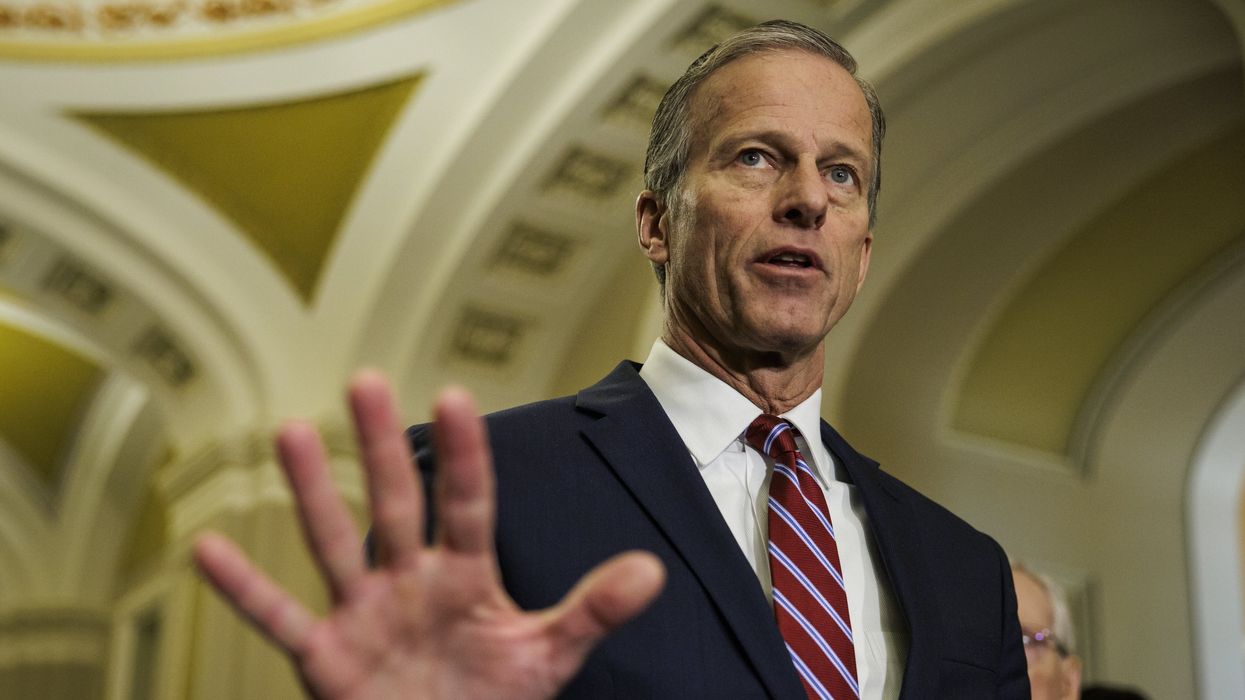The Senate passed legislation on Thursday that would give the U.S. government the power to impose duties on imports from countries when those countries are deemed to be devaluing their currencies in order to gain a trade advantage.
Senators voted 78-20 in favor of the legislation, a broad bill that also looks to extend various U.S. efforts to enforce trade laws and trade agreements. All of the "no" votes were Republicans.
 Sen. Charles Schumer (D-N.Y.), right, the lead supporter of legislation to address currency manipulation, won a victory Thursday when the Senate passed a bill allowing the U.S. to retaliate against countries with undervalued currencies. AP Photo/Manuel Balce Ceneta
Sen. Charles Schumer (D-N.Y.), right, the lead supporter of legislation to address currency manipulation, won a victory Thursday when the Senate passed a bill allowing the U.S. to retaliate against countries with undervalued currencies. AP Photo/Manuel Balce Ceneta
Currency manipulation has been on the minds of both Republicans and Democrats for several years now, and interest peaked in the last decade when China was widely accused of undervaluing the renminbi to boost its exports. But World Trade Organization members have been hesitant to test whether the WTO is capable of authorizing retaliation over currency policy, and that has prompted members to suggest their own way to attack undervalued currency.
Under the bill approved in the Senate today, the government would be charged with investigating whether an undervalued currency is providing a trade advantage in the form of lower prices on U.S.-landed goods, and applying duties on imports to counteract that advantage.
The idea is incredibly controversial, since sovereign countries have the right to set their own currency policies, and no one is quite sure how the WTO might react if a country were to challenge U.S. retaliation as illegal.
The Senate vote was finally able to happen after senators reached a deal on Wednesday to allow a vote to go forward on a bill giving President Barack Obama the authority to negotiate trade deals that can't be amended by Congress. Democrats initially wanted the trade enforcement bill that includes currency language attached to the trade promotion authority bill.
Republicans and even the White House resisted that, since Obama is expected to veto the bill if it reaches his desk.
But it may not get that far. Earlier Thursday, House Speaker John Boehner (R-Ohio) made it clear he opposes the language, and favors the current method of dealing with currency problems — negotiations.
"To think that Congress can legislate what currency valuations are between countries is almost laughable," Boehner said. "I think the Department of Treasury, under the four presidents I've served with, have done a very good job of working with allies around the world when some of these currencies get, in some people's minds, out of line."
"I think that's a much better approach than trying to legislate what should or shouldn't happen with currency valuations," he added, a hint that the House may either ignore the bill or strip out the currency language.
In addition to the trade enforcement bill, the Senate also passed a bill extending preferential trade treatment for sub-Saharan African countries, which was easily approved in a 97-1 vote.

 Sen. Charles Schumer (D-N.Y.), right, the lead supporter of legislation to address currency manipulation, won a victory Thursday when the Senate passed a bill allowing the U.S. to retaliate against countries with undervalued currencies. AP Photo/Manuel Balce Ceneta
Sen. Charles Schumer (D-N.Y.), right, the lead supporter of legislation to address currency manipulation, won a victory Thursday when the Senate passed a bill allowing the U.S. to retaliate against countries with undervalued currencies. AP Photo/Manuel Balce Ceneta





